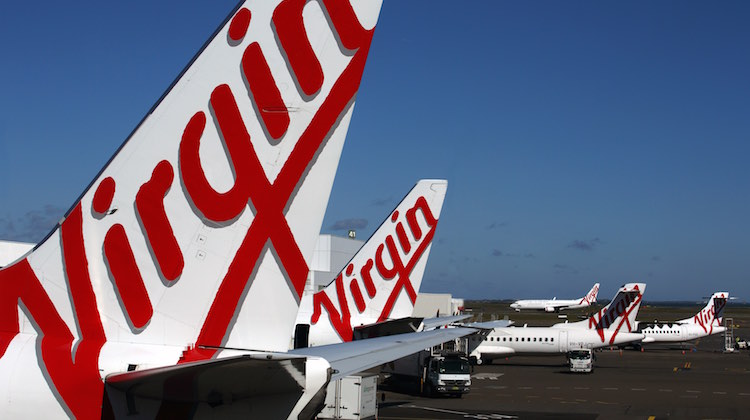Virgin Australia says the competition watchdog’s conditions on its proposed alliance with HNA Group relating to codeshares and interlines with other carriers are unnecessary and may have unintended consequences.
The airline has pushed back on the ACCC’s draft determination published in early June, which approved the tie-up on the condition that the two parties did not “enter into or give effect to any contract, arrangement or understanding which has the effect of preventing or restricting any of the alliance airlines from entering into interline and/or codeshare agreements with any other airline”.
The matter of interline and codeshare agreements was raised in Air China’s submission to the ACCC, which expressed concerns the partnership between Virgin and HNA Group may “substantially restrict competition for feeder traffic on Australian domestic routes”.
In its response to the draft determination, Virgin Australia said in a submission from its legal representative Gilbert + Tobin the terms of the alliance with HNA Group did not prevent or restrict either party from continuing or commencing interline arrangements with other airlines.
Also, it did not prevent or restrict Virgin from continuing or commencing codeshare arrangements with other airlines in relation to Australian domestic routes.
“It appears that the condition proposed in the ACCC’s draft determination is in contemplation of the potential future entry into interline and/or codeshare exclusivity arrangements by any one or more of the applicants, amongst themselves or with third parties,” the Virgin submission dated June 19 and published on the ACCC website said.
“As such, the proposed condition is unnecessary.
“At the most, all that is required to address the issues raised by Air China is to note that the authorisation does not extend to the entry into exclusive interline arrangements, or an exclusive codeshare agreement in relation to Australian domestic routes.”
Virgin, which has an existing interline with Air China, said the ACCC’s condition was “extremely broad and not responsive to the issues raised in the draft determination”.
Moreover, this type of condition could “undermine the ability of the applicants to align their commercial interests, which would put the benefits promised by the alliance and recognised in the draft determination at risk”.
“The proposed condition has the capacity to have unintended consequences,” the Virgin submission said.
Virgin noted Air China did not raise similar concerns in relation to the partnership between Qantas and China Eastern, which the ACCC approved in 2015.
As part of the alliance, Virgin and HNA Group carriers Hong Kong Airlines, Hainan Airlines, Beijing Capital Airlines and Tianjin Airlines would codeshare on each other’s services between Australia and mainland China and Hong Kong, including flights via New Zealand and on routes within HNA Group airlines’ domestic networks.
However, as bilateral restrictions prevent codesharing between Hong Kong and mainland China, Virgin would offer interline connections from Hong Kong into mainland China.
There would also be reciprocal frequent flyer benefits, cooperation on joint pricing and scheduling of services between Australia and Hong Kong and Australia and mainland China.
The issue of so-called behind gateway access in the Australian domestic market has been raised previously in other alliance applications, including the recent unsuccessful attempt by Qantas and American Airlines to establish a joint-venture partnership of trans-Pacific routes.
While the ACCC approved the JV, the US Department of Transportation rejected the carriers’ application.
Hawaiian Airlines was one of the most vocal opponents of the Qantas-American tie-up, arguing any partnership between the two oneworld alliance members be granted with conditions attached regarding arm’s length, pro-competitive codeshare or interline agreements with independent carriers.
The airline’s chief executive Mark Dunkerley said recently smaller carriers such as Hawaiian provided a “degree of competitive discipline in the marketplace which in a world of consolidation and JVs is increasingly disappearing”.
“In order to provide that competitive discipline it is important we have access. Access means different things in different markets,” Dunkerley told Australian Aviation on the sidelines of the International Air Transport Association (IATA) annual general meeting in Cancun, Mexico on June 5.
“In some markets it means having economically feasible slots to use, in other markets it means having airport facilities to be able use and with respect to Australia in particular what it means is being able to access traffic behind the gateways in Australia.
“That is extremely important to us and therefore is something that we think ought to be a consideration before the extraordinary step of granting anti-trust immunity to two large operators in the market.”
Hawaiian has been keen to forge a deeper partnership with Virgin beyond what was in place currently, where the Australian carrier codeshares on its services from Brisbane and Sydney to Honolulu. The pair also have a reciprocal frequent flyer arrangement.
















